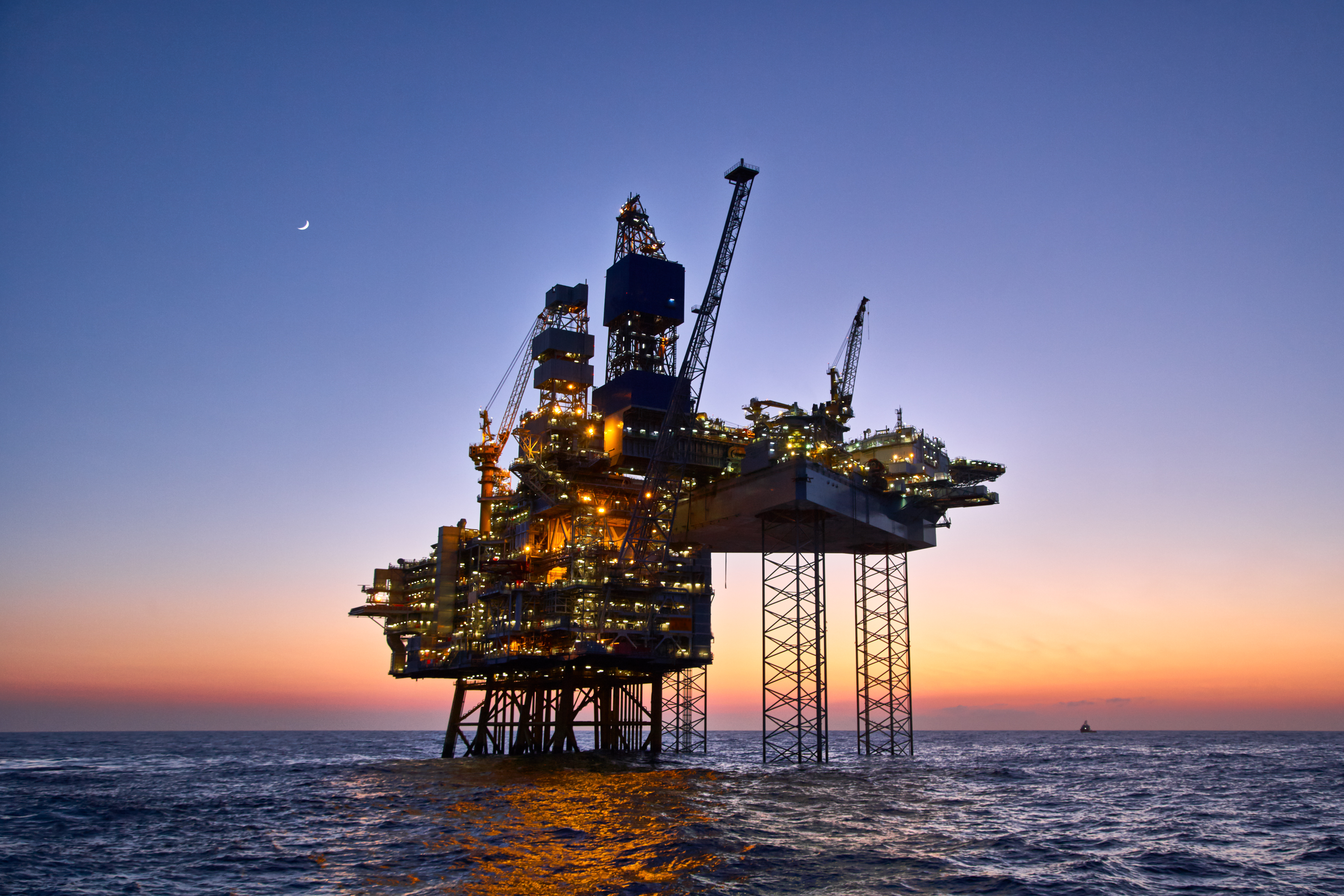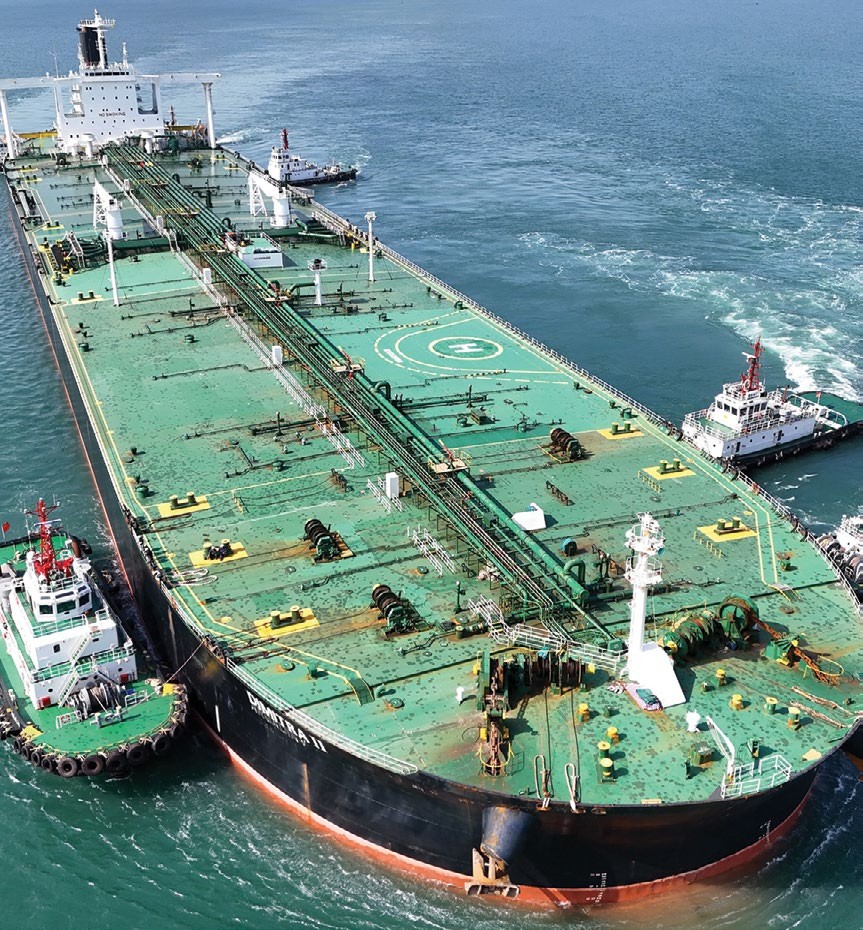'North Sea oil is ripe for a rebound'
Labour’s green-energy policy is unsustainable, says Dominic Frisby. That bodes well for British oil explorers


Get the latest financial news, insights and expert analysis from our award-winning MoneyWeek team, to help you understand what really matters when it comes to your finances.
You are now subscribed
Your newsletter sign-up was successful
Want to add more newsletters?

Twice daily
MoneyWeek
Get the latest financial news, insights and expert analysis from our award-winning MoneyWeek team, to help you understand what really matters when it comes to your finances.

Four times a week
Look After My Bills
Sign up to our free money-saving newsletter, filled with the latest news and expert advice to help you find the best tips and deals for managing your bills. Start saving today!
Ed Miliband’s fantasies of climate justice and clean energy are slowly being exposed. The secretary of state for energy security and net zero’s green delusion is going to be abandoned. If an economy is to grow, then it must consume more energy, not less. Wind and solar power are too expensive and too unreliable, to say nothing of the damage they do to the environment and the carbon footprint they leave. The government is already pledging to paint offshore wind farms black because of all the birds they are killing.
Offshore wind is not going to replace oil and gas. Fossil fuels remain a better, cheaper, cleaner and more reliable source of energy. For an already heavily taxed country that is living well beyond its means, where growth is the only thing that can save it, needlessly expensive energy is not possible.
The Reform party is making the cost of net zero one of its main lines of attack. All Labour has to do is further abandon the left of its party, a process which is already half complete, just as the Tories abandoned the right, and let Miliband go, which is inevitable anyway, and the Reform weapon is blunted.
MoneyWeek
Subscribe to MoneyWeek today and get your first six magazine issues absolutely FREE

Sign up to Money Morning
Don't miss the latest investment and personal finances news, market analysis, plus money-saving tips with our free twice-daily newsletter
Don't miss the latest investment and personal finances news, market analysis, plus money-saving tips with our free twice-daily newsletter
All the above is a preamble to my main argument today. North Sea oil and gas is going to stage a comeback. Political and economic reality mean it is inevitable. Otherwise, the national finances, and with them the Labour government, evaporate. Power is more important to politicians than zealotry, green or otherwise.
The ban on new North Sea oil and gas licences will be lifted. The taxes on North Sea oil companies will be lowered to create an incentive for activity (at present the effective rate is 78%. Are legislators demented?). And all the firms that saw their businesses and market values decimated by this deluded religion are going to make a comeback. Some will multiply many times over. The time may soon be nigh, then, to buy North Sea oil and gas firms. But which ones? Here are my thoughts on the main players in North Sea oil and gas.
Where to look now for investments in North Sea oil
Harbour Energy (LSE: HBR) is the largest independent oil and gas company listed in London; 90% of its business is centred on Britain. Harbour’s market value is £2.6 billion and it yields 11%. Harbour got walloped during Covid, when oil went negative, and had to restructure. The stock got hit again when the Tories imposed a 38% windfall tax after Russia invaded Ukraine; and again after it announced an annual loss, even with a 40% increase in production.
The shares then plunged once more with the falling oil price, which compounded the market’s Trump tariff tantrum. Harbour said its post-tax loss reflected a 108% effective tax rate, up from 93% in 2023. Even if this is an exaggeration, and I’m not entirely sure it is, what is the point of doing business under these circumstances? A simple change in legislation will transform this company’s fortunes. I think it will come, for the reasons outlined above, although when betting on changes in legislation, you can wait a long time.
Ithaca Energy (LSE: ITH) is an Israeli-owned leading North Sea oil and gas producer. It has a £2.3 billion market capitalisation, is hedged against fluctuations in the oil price, and has 37 North Sea operations, which it has grown through acquisitions. It offers a 12% yield.
Aim-listed Serica Energy (Aim: SQZ) has a £600 million market cap and 13% yield. It produces 5% of Britain’s gas. It was supposed to be merging with EnQuest, but the deadline for that deal to close has been extended again. EnQuest (LSE: ENQ) also has some production in Malaysia, and a £230 million market cap. It’s a steady mid-tier producer with a production rate of 41,000 barrels of oil equivalent per day (BOEPD) and a 5% yield. The stock is currently priced as though the Serica deal isn’t going to happen. Kistos (Aim: KIST) is very leveraged to the North Sea. This stock has a £115 million market cap and not long ago was trading at five times its current price. Its shareholders should sue the government for loss of earnings.
Now we come to the tiddlers, starting with Jersey Oil and Gas (Aim: JOG). The £40 million market-cap explorer is funded to the tune of between £5 million and £10 million. It is not the cheapest tiddler, but also not the riskiest. It has more than doubled this year, so somebody is doing something right.
Orcadian Energy (Aim: ORCA) has a market cap of just £9 million. This North Sea developer has yet to produce any oil, but hopes to do so this year. Reabold Resources (Aim: RBD) is a £4.8 million “tiny cap” with no money, so the stock is highly vulnerable to dilution. It has an Italian deal in play that could shift its fortunes. This was an 80p stock in 2021 and a 475p stock in 2007. Now it costs 0.04p. What next? A doubling in price or another 99% decline?
Then there is Deltic Energy (Aim: DELT). This £6.5 million market cap North Sea explorer with three licences, but no money has been creeping back up. It has gained more than 50% this year. But this 7p stock cost 80p in 2021. It is extremely risky, but its Selene gas project is considered a quality asset. The challenge is to raise capital without diluting existing shareholders into oblivion.
The best bet of all these stocks seems to be Harbour. It pays a yield that minimises your risk and compensates you for holding it. I own it, and I’m only down 25% so far. Any change in legislation and the stock could rocket.
Dominic Frisby writes the investment newsletter The Flying Frisby.
This article was first published in MoneyWeek's magazine. Enjoy exclusive early access to news, opinion and analysis from our team of financial experts with a MoneyWeek subscription.
Get the latest financial news, insights and expert analysis from our award-winning MoneyWeek team, to help you understand what really matters when it comes to your finances.

-
 Should you buy an active ETF?
Should you buy an active ETF?ETFs are often mischaracterised as passive products, but they can be a convenient way to add active management to your portfolio
-
 Power up your pension before 5 April – easy ways to save before the tax year end
Power up your pension before 5 April – easy ways to save before the tax year endWith the end of the tax year looming, pension savers currently have a window to review and maximise what’s going into their retirement funds – we look at how
-
 'Investors should brace for Trump’s great inflation'
'Investors should brace for Trump’s great inflation'Opinion Donald Trump's actions against Federal Reserve chair Jerome Powell will likely stoke rising prices. Investors should prepare for the worst, says Matthew Lynn
-
 The state of Iran’s collapsing economy – and why people are protesting
The state of Iran’s collapsing economy – and why people are protestingIran has long been mired in an economic crisis that is part of a wider systemic failure. Do the protests show a way out?
-
 Why does Donald Trump want Venezuela's oil?
Why does Donald Trump want Venezuela's oil?The US has seized control of Venezuelan oil. Why and to what end?
-
 Why Scotland's proposed government bonds are a terrible investment
Why Scotland's proposed government bonds are a terrible investmentOpinion Politicians in Scotland pushing for “kilts” think it will strengthen the case for independence and boost financial credibility. It's more likely to backfire
-
 What MoneyWeek has learnt in the last 25 years
What MoneyWeek has learnt in the last 25 yearsFinancial markets have suffered two huge bear markets and a pandemic since MoneyWeek launched. Alex Rankine reviews key trends and lessons from a turbulent time
-
 Investors can tap into juicy yields in overlooked companies’ debt and equity
Investors can tap into juicy yields in overlooked companies’ debt and equityOpinion Ian “Franco” Francis, fund manager, Manulife CQS New City High Yield Fund tells MoneyWeek where he’d put his money
-
 'BP’s days as an oil giant are numbered – a merger with Shell would be the best outcome by far'
'BP’s days as an oil giant are numbered – a merger with Shell would be the best outcome by far'Opinion BP has been in decline for some time, could a takeover by Shell save it?
-
 Investors remain calm as the Middle East war unfolds
Investors remain calm as the Middle East war unfoldsConflict in the Middle East has failed to shake oil or stock markets. Can the peace hold?